Search Articles
Browse Content (p. 129)

Article
Early Jericho
The city of Jericho is remembered for the story in the Book of Joshua in the Bible regarding its destruction by the Israelites. Excavations have revealed that Jericho is one of the earliest settlements dating back to 9000 BCE. It also has...
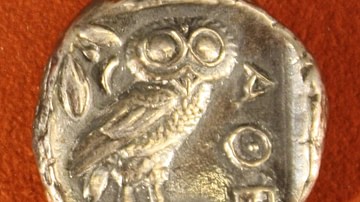
Article
The Delian League, Part 3: From the Thirty Years Peace to the Start of the Ten Years War (445/4–431/0 BCE)
This text is part of an article series on the Delian League. The third phase of the Delian League begins with the Thirty Years Peace between Athens and Sparta and ends with the start of the Ten Years War (445/4 – 431/0 BCE). The First Peloponnesian...

Article
The Delian League, Part 2: From Eurymedon to the Thirty Years Peace (465/4-445/4 BCE)
This text is part of an article series on the Delian League. The second phase of the Delian League's operations begins with the Hellenic victory over Mede forces at Eurymedon and ends with the Thirty Years Peace between Athens and Sparta...
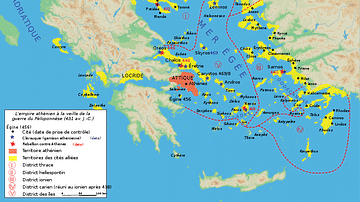
Article
The Delian League, Part 1: Origins Down to the Battle of Eurymedon (480/79-465/4 BCE)
This text is part of an article series on the Delian League. The modern term Delian League refers to the primarily maritime συμμᾰχία or symmachy (offensive-defensive alliance) among various Greek poleis, which emerged after the second Mede...
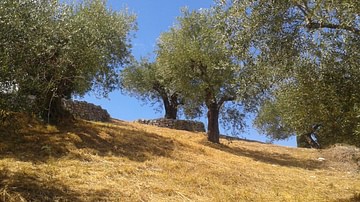
Article
The Olive in the Ancient Mediterranean
Olives and olive oil were not only an important component of the ancient Mediterranean diet but also one of the most successful industries in antiquity. Cultivation of the olive spread with Phoenician and Greek colonization from Asia Minor...
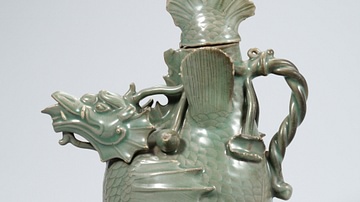
Article
Korean Celadon Pottery
The celadon (or greenware) ceramics produced in ancient Korea during the Goryeo Dynasty (918-1392 CE), are regarded as some of the finest and most elegant pottery pieces produced anywhere. With a pale green lustre reminiscent of jade and...

Article
Third Gender Figures in the Ancient Near East
In the ancient Near East, there was a social standard by which men were ideally expected to behave. In the 21st century CE, expectations still exist, albeit in different forms. Normative masculinity through ancient Mesopotamia typically concerned...
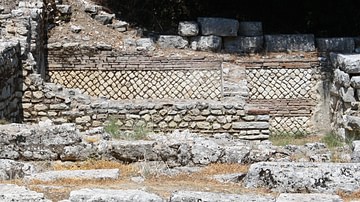
Article
Roman Walls
The many Roman walls still visible today throughout Europe and the Mediterranean, be they defensive walls such as the Servian Wall or house and monument walls, tell us a great deal about the evolution of Roman construction techniques. Roman...
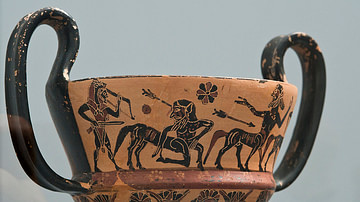
Article
Wine in the Ancient Mediterranean
Wine was the most popular manufactured drink in the ancient Mediterranean. With a rich mythology, everyday consumption, and important role in rituals wine would spread via the colonization process to regions all around the Mediterranean coastal...
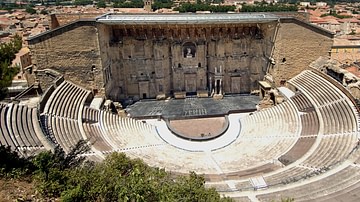
Article
The Roman Theatre of Orange
The Roman theatre of ancient Arausio (modern day Orange in southern France) is one of the best-preserved examples from antiquity. Built in the 1st century CE, it once had capacity for 9,000 spectators and is dominated by its massive stage...